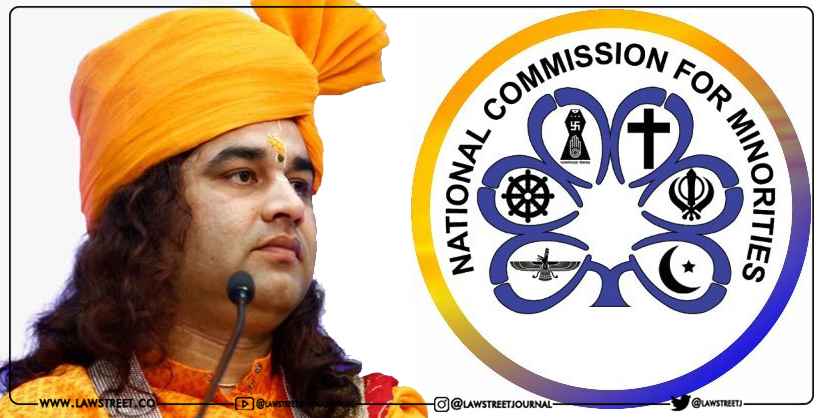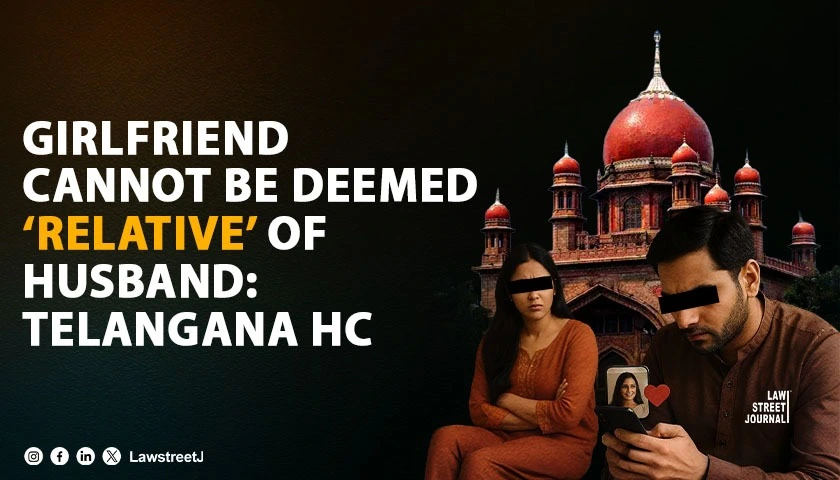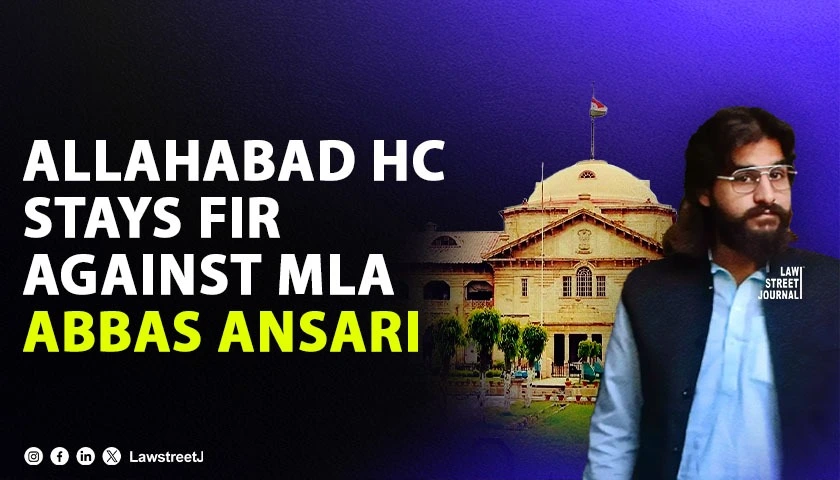A Public Interest Litigation (PIL) has been filed in the Supreme Court by Dharma Guru Devkinandan Thakur Ji to challenge the validity of Section 2(c) of the National Commission for Minorities (NCM) Act 1992 for not only giving unbridled power to the Centre but also being manifestly arbitrary, irrational and offending Articles 14, 15, 21, 29 and 30 of the Constitution of India.
The PIL has been filed through Advocate-on-Record Ashutosh Dubey on behalf of the petitioner. The Ministries of Home Affairs, Law & Justice (Legislative Department) and Minority Affairs have been made respondents in the said petition.
The facts constituting cause of action accrued on 17.05.1992 when the Act came into effect and by using unbridled power under S. 2 ( c ), Centre arbitrarily notified 5 communities viz. Muslims, Christians, Sikhs, Buddhists and Parsee as minority at national level against the spirit of TMA Pai ruling. Cause of action continues till date because followers of Judaism, Bahaism & Hinduism; who are real minorities in Ladakh, Mizoram, Lakshadweep, Kashmir, Nagaland, Meghalaya, Arunachal Pradesh, Punjab, Manipur, cannot establish & administer educational institutions of their choice because of non of minority at State level, thus identification jeopardizing their basic rights guaranteed under Article 2930. Their right under Articles 2930 is being siphoned off illegally to the majority community in the State because Centre has not notified them minority under NCM Act. Followers of Judaism, Bah aism & Hinduism are being deprived of their basic rights to establish & administer educational institutions of their choice.
The petition states that,
Hindus are merely 1% in Ladakh, 2.75% in Mizoram, 2.77% in Lakshadweep, 4% in Kashmir, 8.74% in Nagaland, 11.52% in Meghalaya, 29% in Arunachal Pradesh, 38.49% in Punjab and 41.29% in Manipur but Central Government has not declared them minority under Section 2(c) of the NCM Act and Section 2(f) of the NCMEI Act, thus Hindus are not protected under Articles 29-30 and cannot establish-administer educational institution of their choice.
By using unbridled power under S. 2(c) of the NCM Act and S2(f) of the NCMEI Act, Centre has arbitrarily declared Muslims as minority, who are 96.58% in Lakshadweep, 95% in Kashmir & 46% in Ladakh. Centre has declared Christians as minority, who are 88.10% in Nagaland, 87.16% in Mizoram & 74.59% in Meghalaya so they can establish & administer the education institution of their choice. Likewise, Sikhs are 57.69% in Punjab & Buddhists are 50% in Ladakh and they can establish & administer educational institutions but not the followers of Bahaism & Judaism, who are merely 0.1% and 0.2% respectively. Therefore, petitioner is challenging validity of Section 2(f) of the National Commission for Minority Educational Institution Act 2004, for being arbitrary, irrational & contrary to Articles 14, 15, 21, 29, 30 of the Constitution.
In exercise of the unbridled powers conferred by Section 2(c) of the NCM Act, the Central Government through the Notification dated 23.10.1993 arbitrarily notified five communities viz. Muslims, Christians, Sikhs, Buddhists and Parsis as minority community, without defining minority and framing guidelines for identification at State level. In 2014, Jains were added in the list as sixth minority, though the 3 judges bench of this Honble Court in Bal Patil Case had very categorically refused to grant minority status to them.
Followers of Judaism, Bahaism, Hinduism; who are minority in Ladakh, Mizoram, Lakshadweep, Kashmir, Nagaland, Meghalaya, Arunachal Pradesh, Punjab, Manipur; cannot establish & administer educational institutions because of non-identification of minority at State level in spirit of TMA Pai ruling, thus jeopardizing their rights guaranteed under Article 29-30. Their right under Articles 29-30 is being siphoned off illegally to the majority population because the Centre has not notified them minority under the NCM & NCMEI Act. They are being deprived of their basic rights, guaranteed under Articles 29-30.
The petitioner respectfully submits that,
For the purpose of notifying a community as minority, Centre is empowered to consider the claim of a particular community for being notified as such under S. 2(c) of the NCM Act and S. 2(f) of the NCMEI Act, and cannot shirk its statutory responsibility. The legal position explained by the majority view in the TMA Pai Case that States can determine the minority status of a community, does not render the power of Centre under Section 2(c) of the NCM Act and Section 2(f) of the NCMEI Act.
The denial of minority rights to the real minorities and arbitrary and unreasonable disbursement of minority benefits to the absolute majority, infringes upon the basic right to prohibition of discrimination on the grounds of religion race caste sex and place of birth [Article 15]; impairs the right to equality of opportunity in matters related to public employment [Article 16]; and also offends freedom of conscience and right to freely profess practice and propagate religion [Article 25]. Moreover, it erodes the obligation of the State to endeavor to eliminate inequalities in status facilities opportunities [Article 38]. Therefore, the Hon'ble Court may declare Section 2(c) of the NCM Act 1992 & Section 2(f) of the NCMEI Act 2004, arbitrary, irrational void and unconstitutional.
The prayers of the petition are as follows:
- To direct and declare that Section 2(c) of the National Commission for Minorities Act 1992, is void, unconstitutional and inoperative for being violative of Articles 14, 15, 21, 29 and 30 of the Constitution;
- To direct and declare that the Notification on Minority Community, issued by Ministry of Welfare, Government of India on 23.10.1993, is arbitrary irrational and contrary to Articles 14, 15, 21, 29, 30 of the Constitution, hence void, constitutional and inoperative;
- To direct the respondents to define minority and lay down guideline for identification of minorities at district level, in order to ensure that only those religious and linguistic groups, which are socially economically politically non-dominant & numerically very inferior, get the benefits and protections guaranteed under Articles 29-30;
- To pass such other order(s) or direction(s) as Honble Court may deem fit and proper in facts of the case and allow the cost to the petitioner.








